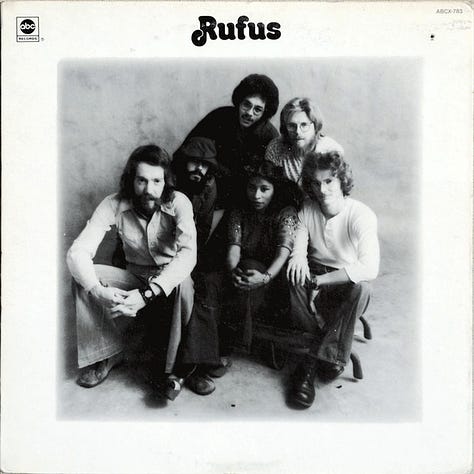

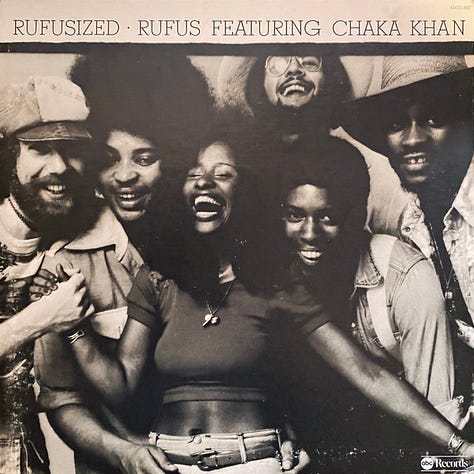
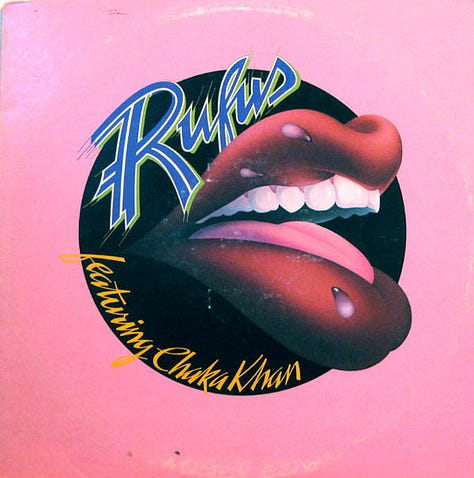
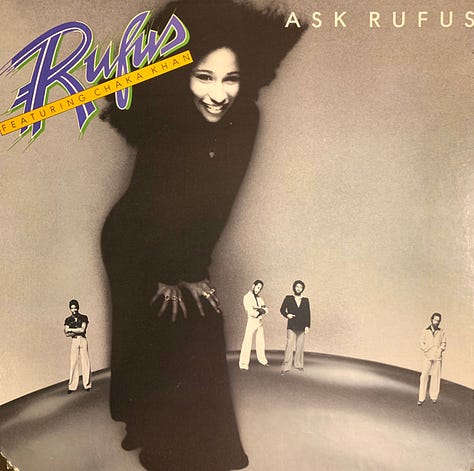
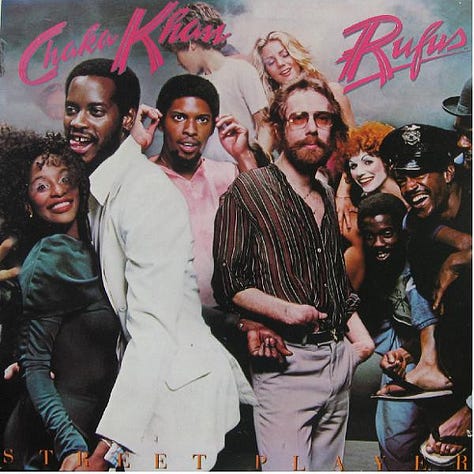
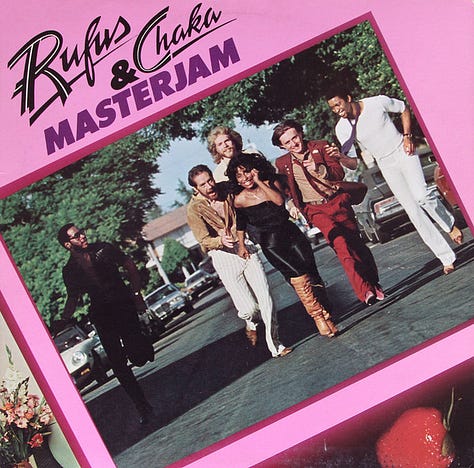
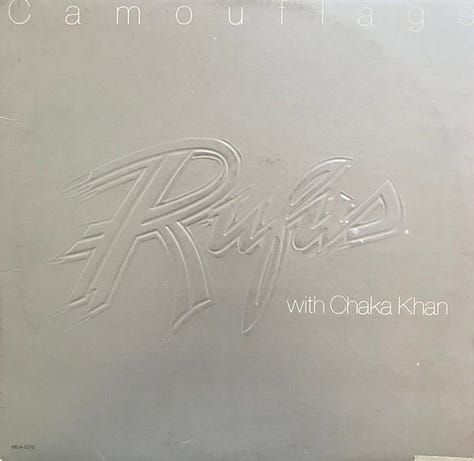
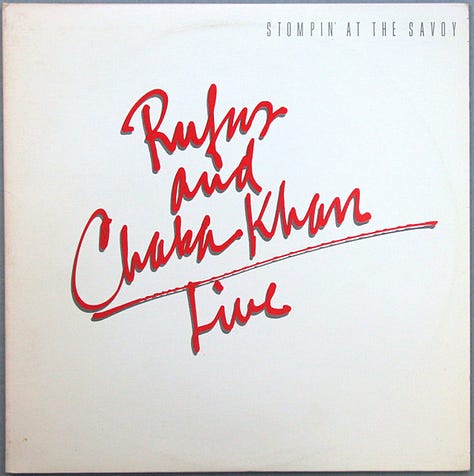
Catalog is meant to be a recurring feature, wherein I look at an artist’s entire ouevre, à la the Rolling Stone Record Guide — sometimes broken down by time periods, when the artist in question has a vast catalog. Grades are my own.
Rufus were one of the greatest soul groups of the 1970s. I’m only covering their work with Chaka Khan at the front, which means this ends with 1983’s swan song Live — Stompin’ at the Savoy, and doesn’t include their trio of Khan-less studio albums prior to that, 1979’s Numbers, 1981’s Party ‘Til You’re Broke, and 1983’s Seal in Red. Because let’s be honest: Rufus is a great band, but without Khan, would we be talking about them today? No, we would not.
Rufus (1973): Greasy southern, Muscle Shoals-style funk via Chicago. You can hear the seeds of what was germinating, but it’s still fairly unformed. 5/10
Rags to Rufus (1974): They weren’t yet polished, still sounding kinda hippie-soulful, like the child of Rotary Connection (it’s there on “I Got the Right Street”) and Sly & the Family Stone (“Swing Down Chariot”), with a soupçon of, kid you not, Chicago, which you can hear most in the title track. The smash singles “Tell Me Something Good” and “You Got the Love” best represented their band of gutbucket funk. 6/10
Rufusized (1974): Rufus’s first album with a “featuring Chaka Khan” credit was their second consecutive top ten and is a sublime showcase for the mixed-race funk band from Chicago. “Pack’d My Bags” starts as a jazzy little number before turning into greasy funk on its chorus; “Your Smile” is a ballad that allows Khan to really stretch her vocal chops. In the midst of the ERA era, “I’m A Woman (I’m A Backbone)” is a strong statement of feminist intent. And lead single “Once You Get Started” is a fast-dancin’, sunshine-rockin’ groove. This is the album where it all comes together for Khan and her band of merry funkateers. 10/10
Rufus featuring Chaka Khan (1975): Well, I certainly didn’t expect that cover of “Jive Talkin’.” “Sweet Thing” is of course a wonder, but overall this one’s a little too jumpy and aggressive for my taste. 6/10
Ask Rufus (1977): Rufus at their smooth-and-sexiest, with the likes of “Close the Door” and “Everlasting Love” leading the way. Khan shows some real restraint on songs like “Hollywood,” too — you can hear the development in her talents here. 9/10
Street Player (1978): The Chicago cover/title track is unexpected but makes sense, and goddamn, by ’78 they were so well-oiled they could’ve traveled cross-country without a hiccup, if you catch my drift. The back-to-back punch of “Stay” and “Turn” is too bad-ass. 8/10
Masterjam (1979): Produced by Quincy Jones after Chaka sang on his ’78 R&B #1 “Stuff Like That,” and there’s a big fat photo of Q inside the gatefold. Ego much? Weirdly, you can’t really hear much of his sonic fingerprints on this, though “Live in Me” has a little “Give Me the Night” in its DNA even though the latter came a year later — the key is that it’s written by Rod Temperton, and Q produces it the way he produced all of Temperton’s songs. And there’s a cover of “Body Heat,” interestingly. Overall the album’s kind of unfocused, albeit with a tasty end-of-decade disco/R&B vibe (cf R&B #1 “Do You Love What You Feel) going on overall. 7/10
Camouflage (1981): The final studio album they made together, self-produced, not a big hit, and the only one not on Spotify; make of that what you will. It’s alright, sounds very much like ’81 R&B, and I’m honestly surprised it was a (relative) flop. That said, it’s not a standout, either. On some songs, you can hear how Khan was kinda already checked out of the band. 6/10
Live — Stompin’ at the Savoy (1983): What a way to go out: a de facto hits record recorded live (and including some non-hit gems like “I’m A Woman” and “You’re Welcome, Stop on By,” along with Khan’s solo smash “What Cha Gonna Do for Me”), along with the new studio cut “Ain’t Nobody,” which of course became an instant classic. Sheer perfection. 10/10
[Originally written in 2020.]


